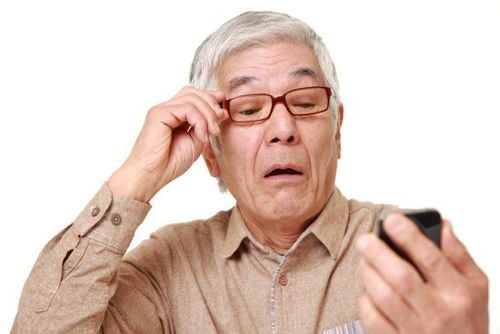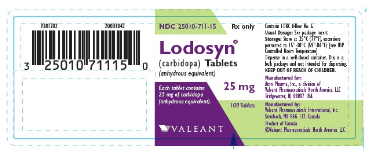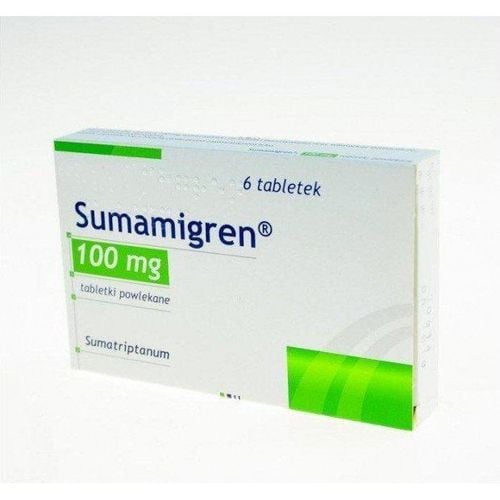This is an automatically translated article.
The article is professionally consulted by Master, Doctor Huynh An Thien - Department of Medical Examination & Internal Medicine - Vinmec Danang International General Hospital.
In fact, temporal headache is a nonspecific symptom that can arise from a variety of causes and conditions, such as neuropathy, arterial disease, or eye disease. Regardless of the cause, the headache with jerking temples also needs to be followed up by the patient to detect the cause of the disease early.
1. Headache due to arterial disease
One cause of persistent temporal headaches is systemic arteritis localized to the temporal arteries (Horton's disease). This is a dangerous disease that can cause vision disturbances and even blindness.The cause of Horton's disease was determined to be an immune phenomenon that inflames the inner elastic layer of the arteries, especially the superficial temporal artery and branch of the external carotid artery.
Signs to recognize Horton's disease include:
Temporomandibular headache: May appear on one or both sides, spontaneous pain or after very mild stimulation, pain is persistent and radiates to the forehead or socket. eyes, occipital crest on the same side. The intensity of pain will increase with cold, sometimes there are paroxysmal attacks that cause the patient to struggle and cry. The temporal area may be swollen, red and hot to the touch than other areas, which is a manifestation of superficial temporal arteritis; Damaged ophthalmic and occipital arteries: May be accompanied by damage to the facial artery, causing ischemia of the masticatory muscle, causing the patient to have a lot of pain when chewing, called jaw lameness; Eye symptoms: Patients often have photophobia, diplopia, strabismus due to ophthalmoplegia, foggy vision or visual field disturbances. The most serious complication is complete blindness and often has a very sudden, irreversible course of vision loss for a few hours to a few days if not treated; Systemic symptoms: Patients may experience fatigue, insomnia, loss of appetite, and sometimes fever. To treat the disease, corticosteroids are the only effective treatment and should be treated early as well as closely monitored the use of corticosteroids. The usual dose is prednisolone 0.5-1 mg/kg given 24 hours after the first pain, tapered off and consolidation therapy for 12-36 months.

2. Headache due to neurological disease
Neurological etiologies of temporal headaches are diverse, in which papilledema is the main symptom of papillitis and raised intracranial pressure, two typical diseases of the neurological chapter.Brain tumor is also a cause of headache in the temporal region with abundant and unpredictable manifestations. Patients may experience unexplained fainting spells or psycho-behavioral changes. In addition, tumors of the skull base or pituitary gland are often manifested by visual field defects and hormonal changes such as menstrual disorders and abnormal lactation.
Migraine migraine is also a typical etiology in older female patients. Migraine headaches have visual precursors - strobe spots followed by transient blurred vision or stuffy nose, nausea, pain often accompanied by vomiting or mild relief after vomiting. Resting will help improve symptoms significantly.
3. Headache due to eye disease

Presbyopia that causes eye pain when reading can also lead to headaches, or deep scleritis that causes pain and discomfort when looking or lying down. Pulley point pain or great oblique tendonitis, orbital cellulitis, orbital tumor cause deep pain and increase when bowing. In addition, uveitis, optic neuritis also causes headaches with temporal convulsions.
Patients complain of headache with temporal jerks which is very common in clinics today. The analysis also showed that there are many reasons leading to this phenomenon. This is a warning sign of many dangerous diseases, so the patient should not be subjective but need to see a doctor to know the exact cause and take timely intervention measures. Currently, the Department of Neurology - Vinmec International General Hospital is always at the forefront in the field of examination and treatment of diseases related to the central nervous system as well as the peripheral nervous system. With a team of doctors - doctors with 20 - 40 years of experience... Vinmec has successfully diagnosed and treated neurological diseases, including: Cerebrovascular accident, dementia, pain headache, dizziness, neuromuscular disease, ... for many cases of patients. In particular, Vinmec International General Hospital also has a comprehensive, diverse and high standard medical examination and treatment service, as well as a system of modern and absolutely sterile equipment - is the address for pain examination and treatment. the first choice of many patients.
Please dial HOTLINE for more information or register for an appointment HERE. Download MyVinmec app to make appointments faster and to manage your bookings easily.














